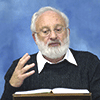The Zohar Instructs Us Like An Experienced Teacher
 When reading The Book of Zohar, every person has to try to find a more internal state within. We do not have the capability to imagine a state any higher than the adjacent one. I can fantasize to no end and think that I am imagining the World of Infinity, but it will only seem that way to me, whereas in reality, I will later discover that this was just the following inner state, slightly higher than my state today.
When reading The Book of Zohar, every person has to try to find a more internal state within. We do not have the capability to imagine a state any higher than the adjacent one. I can fantasize to no end and think that I am imagining the World of Infinity, but it will only seem that way to me, whereas in reality, I will later discover that this was just the following inner state, slightly higher than my state today.
Therefore, one must aim all of one’s energy and efforts at trying to discern the inner desires and qualities which correspond to every word written in The Zohar. For example, “city,” “tower,” “ascending,” “descending,” “angels,” “demons,” “spirits,” “the sons of Efraim” – no matter what or who is being described, it is all referring to one’s inner desires and qualities.
The book or the author is speaking to us like an adult to a baby, telling us only the things that are suitable for us. We will not be able to read any more than that in The Book of Zohar, or to imagine, hear or see more. But in fact, the contents of this book are much greater than what we currently see. We just can’t see it for now. We are only able to see a small bit, as if we are being taught by an experienced teacher who is able to give us only what is beneficial to us, and no more.
Therefore, we shouldn’t be afraid to give everything in trying to find the inner concepts within us, which are described by the text in front of us. We will ascend to these notions, recognize them and experience them for a time, like a baby that grows up over a day, a week or a month, and is then able to understand more than before; he gains the ability to reveal deeper, more internal things. Previously a baby could not see or recognize these things because they were simply beyond his field of vision.
Our spiritual development happens in the same way: by rereading the same text, we will continually reveal new inner qualities and new connections.

 Laitman.com Comments RSS Feed
Laitman.com Comments RSS Feed





There are several translations of the Zohar available. Are they appropriate if one ignores the commentary?